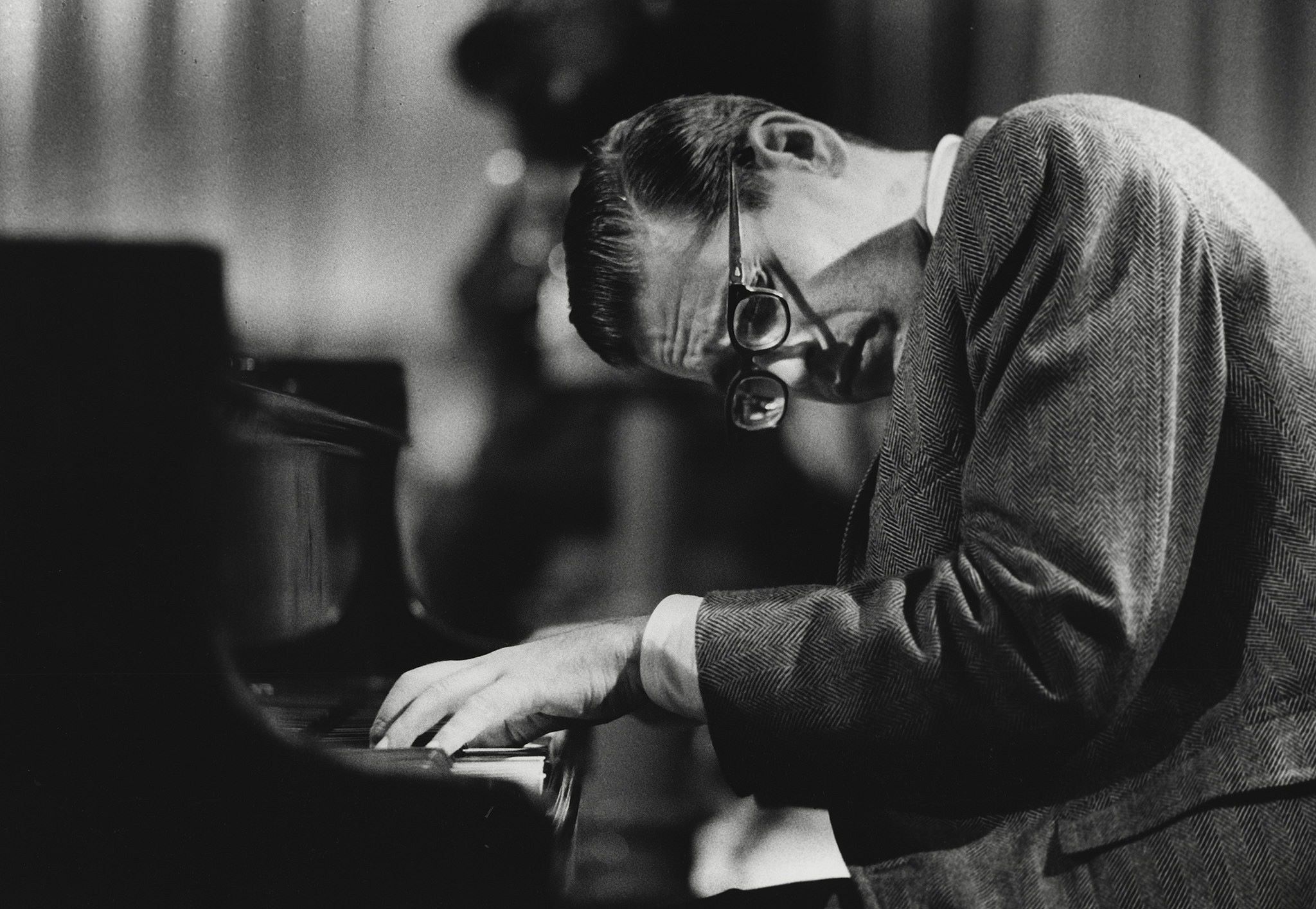
Bill Evans is a legendary figure in the world of jazz music, known for his impeccable piano skills and innovative approach to harmony. Born on August 16, 1929, in Plainfield, New Jersey, Evans started playing the piano at a young age and quickly became drawn to the world of jazz. Throughout his career, he left an indelible mark on the genre, elevating it to new heights with his lyrical and introspective style of playing.
Evans’s contributions to jazz are widely recognized and celebrated. From his groundbreaking work with the Miles Davis Sextet, to his iconic trio recordings, he constantly pushed the boundaries of the art form. Despite his untimely death in 1980, his influence can still be heard today in the playing of countless pianists.
In this article, we will delve into some fascinating facts about Bill Evans, shedding light on his life, music, and lasting impact on the jazz world.
Key Takeaways:
- Bill Evans, a jazz legend, overcame personal struggles to create timeless music that continues to inspire and captivate audiences worldwide.
- Evans’ innovative approach to harmony and improvisation, coupled with his sensitive playing style, solidified his place as one of the greatest jazz pianists of all time.
Bill Evans was a highly influential jazz pianist.
Renowned for his unique approach to harmony and his lyrical improvisation, Bill Evans left an indelible mark on the world of jazz music.
He was born on August 16, 1929, in Plainfield, New Jersey.
Bill Evans’ early life played a significant role in shaping his musical journey, as he was exposed to classical and jazz music from a young age.
Evans studied music at Southeastern Louisiana University and later at Mannes School of Music.
His formal education refined his technical skills and provided a solid foundation for his future artistic endeavors.
One of his most famous albums is “Sunday at the Village Vanguard.”
This live recording, released in 1961, is considered a landmark in the history of jazz trio recordings and showcases Evans’ captivating improvisational abilities.
He became a member of the Miles Davis Sextet in 1958.
Evans’ collaboration with Miles Davis during the late 1950s had a profound impact on the development of modern jazz.
Evans formed the Bill Evans Trio in 1959.
Together with bassist Scott LaFaro and drummer Paul Motian, he created a groundbreaking ensemble that pushed the boundaries of jazz trio performance.
He composed the jazz standard “Waltz for Debby.”
This beautiful composition has been covered by countless musicians and remains a testament to Evans’ talent as a songwriter.
Bill Evans was known for his introspective and sensitive playing style.
His delicate touch on the piano and his ability to convey emotional depth through his music captivated audiences around the world.
Evans struggled with drug addiction throughout his life.
This personal battle had a significant impact on his career, but he continued to create incredible music despite the challenges he faced.
His album “Kind of Blue” with Miles Davis is one of the best-selling jazz albums of all time.
The album’s timeless compositions and innovative approach to improvisation solidified Evans’ place in the pantheon of jazz legends.
Evans was posthumously inducted into the DownBeat Jazz Hall of Fame in 1981.
This recognition reaffirmed his enduring influence and contributions to the world of jazz.
He collaborated with numerous other jazz greats, including Tony Bennett and Stan Getz.
Evans’ versatility as a pianist allowed him to seamlessly integrate with different artists and create stunning musical moments.
Evans received multiple Grammy Awards throughout his career.
His exceptional artistry and dedication to his craft earned him recognition from the prestigious music industry awards.
The Bill Evans Piano Competition was established in his honor.
This annual event serves to celebrate Evans’ legacy and provide a platform for emerging jazz pianists to showcase their talent.
Conclusion
Bill Evans was a remarkable jazz pianist who left a lasting impact on the music world. His unique approach to harmony and his lyrical playing style made him a revered figure among musicians and fans alike. From his influential recordings with the Miles Davis sextet to his groundbreaking trio albums, Evans demonstrated his unparalleled talent and musical sensitivity.The 14 facts mentioned above shed light on various aspects of Bill Evans’s life and career. They showcase his dedication to his craft, his collaborations with other jazz giants, and his lasting legacy in the world of music. Whether you are a long-time fan or just discovering his music, exploring these facts will deepen your appreciation for this legendary pianist.In conclusion, Bill Evans’s contribution to jazz and his influence on future generations of musicians can never be overstated. His innovative approach and unmatched musical talent continue to inspire and captivate audiences to this day.
FAQs
1. What genre of music did Bill Evans play?
Bill Evans was primarily known for his contributions to jazz music. He was a prominent figure in the development of modal jazz and post-bop styles.
2. When was Bill Evans born?
Bill Evans was born on August 16, 1929, in Plainfield, New Jersey, United States.
3. What is Bill Evans’s most famous album?
One of Bill Evans’s most famous albums is “Sunday at the Village Vanguard” which was recorded live in 1961 with his trio.
4. Did Bill Evans compose his own music?
Yes, Bill Evans was not only a talented pianist but also a prolific composer. He wrote many of his own compositions, including the well-known tune “Waltz for Debby.”
5. Who were some of Bill Evans’s notable collaborators?
Bill Evans worked with numerous talented musicians throughout his career, including Miles Davis, Tony Bennett, and Jim Hall.
6. Was Bill Evans classically trained?
Yes, Bill Evans received classical training in piano as a child and went on to study music theory and composition at Southeastern Louisiana University.
7. How did Bill Evans approach harmony in his music?
Bill Evans had a unique approach to harmony, often incorporating complex chord voicings and rich harmonic textures into his improvisations.
8. What awards did Bill Evans receive during his career?
Bill Evans was posthumously honored with multiple Grammy Awards, including Best Jazz Solo Performance and Best Jazz Instrumental Album.
9. Did Bill Evans have any signature tunes?
Yes, some of Bill Evans’s signature tunes include “Peace Piece,” “My Foolish Heart,” and “Israel.
10. What was Bill Evans’s playing style like?
Bill Evans had a lyrical and introspective playing style. His delicate touch, rich harmonic voicings, and excellent technique set him apart as a pianist.
Bill Evans' groundbreaking approach to jazz improvisation and piano playing has left an indelible mark on music history. If you're curious to learn more about the art of improvisation, check out our article on the Del Close Marathon. Jazz enthusiasts will also find our comprehensive collection of jazz facts irresistible. For those passionate about the piano, our article on piano facts is a must-read, offering insights into this beloved instrument's history and its role in shaping music across genres.
Was this page helpful?
Our commitment to delivering trustworthy and engaging content is at the heart of what we do. Each fact on our site is contributed by real users like you, bringing a wealth of diverse insights and information. To ensure the highest standards of accuracy and reliability, our dedicated editors meticulously review each submission. This process guarantees that the facts we share are not only fascinating but also credible. Trust in our commitment to quality and authenticity as you explore and learn with us.


